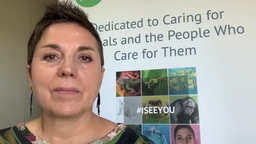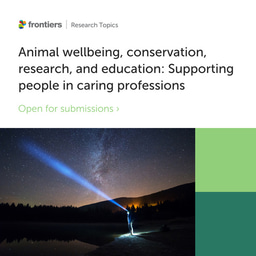Wild about self-care book
Your insights and feedback matters

Hi! Hope this finds you smiling.
Some years ago, I started writing a book on self-care. A book with foundational self-care resources that helps animal wellbeing and conservation professionals feel good while doing good. With stories and life lessons, sharing the things I wish I had known and learned earlier in my career, including the importance of taking care to give care.
Between COVID and some other challenges, it has been on the back burner (saying no to writing it then was a form of self-care). But no longer!
I have been writing for the last months and using my experiences and insights from the many online and in-person sessions over the last 5 years with people like you, working in the animal wellbeing and/or conservation fields. I have also found some interesting and important findings through my PhD journey, which I will infuse in the book too.
I am writing this book for you, for everyone who is dedicated to caring for animals, saving species, and wild places. Your feedback on what would be helpful, important, and inspiring is important to me.
I would love to hear from you, what you think should not be missing, what would make you want to read and use this book. If you want to share, please click below to answer a few questions.
You can share your insights and ideas via this link
Take care, and don't forget to play!
Sabrina 



Please sign in or register for FREE
If you are a registered user on WildHub, please sign in
🌿 This is such a timely and powerful initiative, Sabrina. Thank you for choosing to write this book for all of us who strive to care deeply, often at a cost to our well-being. Your phrase “take care to give care” really resonates.
I admire how you're blending personal stories, professional insights, and PhD research. It’s rare to see such depth and compassion in one place. I especially appreciate the courage it took to pause the project and now return to it with fresh energy. That’s a lesson in self-care right there.
One idea that might be helpful: incorporating reflections from early-career conservationists and community-based practitioners working in marginalized areas. Their experiences often highlight not just burnout risks, but creative coping strategies rooted in culture, kinship, and purpose.
🧠 “As you weave together personal experiences, research, and professional wisdom in your book, what’s one story or insight that has surprised you most, perhaps something you didn’t expect to uncover or a lesson that keeps growing in meaning?”
Thank you for inviting our voices into the process.
Wishing you joy in the writing, and thanks again for reminding us to play. 🙌
@SIMON KARIUKI
Hello Simon, thank you very much for you caring reflections and suggestions. I will have a think of a story or insight 😊
Perhaps you would be so kind and willing, here or in a direct message to elaborate so I can learn more about your comment "One idea that might be helpful: incorporating reflections from early-career conservationists and community-based practitioners working in marginalized areas. Their experiences often highlight not just burnout risks, but creative coping strategies rooted in culture, kinship, and purpose."?
Specifically I am curious about 'creative coping strategies rooted in culture, kinship, and purpose' as I see these as 'universal' in the sense that also here in Spain, or when I work elsewhere, there are cultural, and other aspects to consider, but maybe these are amplified or exacerbated due to geo/political and other lacking/challenging conditions, is this what I have to understand when you speak of marginalised areas?
Thank you for sharing so I can learn more and understand better.
🌿 Hi Sabrina, thank you so much for your reply. It’s my pleasure to contribute and reflect together.
What I meant by “creative coping strategies rooted in culture, kinship, and purpose” comes from witnessing how conservationists, especially those starting in marginalized or under-resourced communities, often draw on resilient practices that go beyond conventional models of self-care. While burnout risks can be heightened due to limited infrastructure, funding, or socio-political constraints, these practitioners frequently lean into what sustains them culturally and communally.
For instance:
Culture: Rituals, songs, or traditional ecological practices passed down through generations often provide grounding and a sense of continuity, like elders leading morning walks or storytelling sessions that connect the land’s care with personal healing.
Kinship: Support systems that include not just family but extended community relationships, people stepping in as mentors, emotional anchors, or collaborative problem-solvers when formal wellness programs are absent.
Purpose: A deeply felt responsibility to protect species or ecosystems, not just professionally but as part of identity. For some, conservation is tied to ancestral stewardship, spiritual beliefs, or intergenerational promises.
These strategies aren’t always visible in mainstream mental health discourse, but they’re powerful, often sustaining entire teams or movements. So yes, I do think these universal threads of care and connection exist everywhere, but in marginalized settings, they’re often amplified by necessity and ingenuity.
If helpful, I am happy to share an anonymized reflections or a story from a young practitioner who spoke about these practices, particularly those working in grassroots initiatives across East Africa, an example, " Kinship as a Buffer Against Burnout- A young community ranger from northern Tanzania spoke about how his grandmother’s evening storytelling ritual became a lifeline during emotionally taxing fieldwork. After long days monitoring human-wildlife conflict zones, he would return to her hut, where she recounted ancestral tales of coexistence with lions and elephants. These stories didn’t just soothe him; they reminded him that conservation wasn’t a modern imposition but a continuation of cultural stewardship. He said, “Her stories gave me back my strength. They made me feel like I wasn’t alone in this work.”
Thank you again for your openness and invitation. Your work holds such richness, and it’s inspiring to see how intentionally you’re weaving many layers of care, place, and story into it. 🕊️
Warmly,
Simon